Results
-
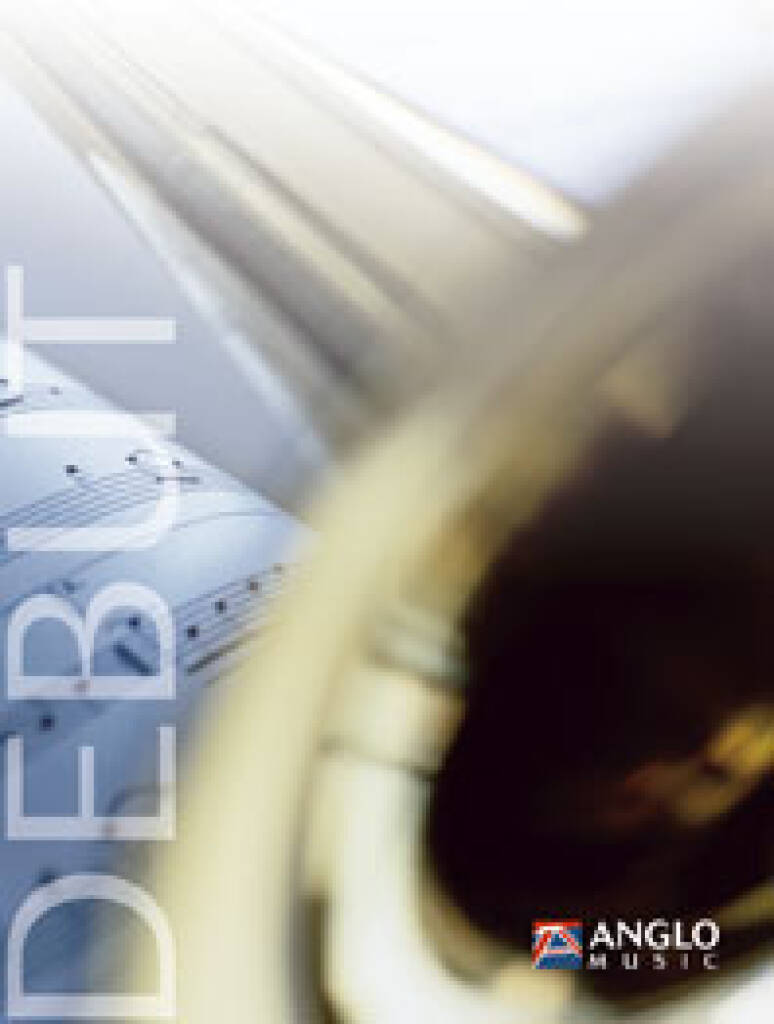 £99.99
£99.99Jeanie with the light brown hair - Stephen Foster
One of the most beautiful songs ever written. Philip Sparke's sumptuous arrangement of this Stephen Foster classic will make a perfect item to bring a few minutes of peace and calm tranquillity to any concert. The lush harmonies, so characteristic of Philip Sparke's arranging. Once you have played this once you will want it on every concert programme.
Estimated dispatch 7-14 working days
-
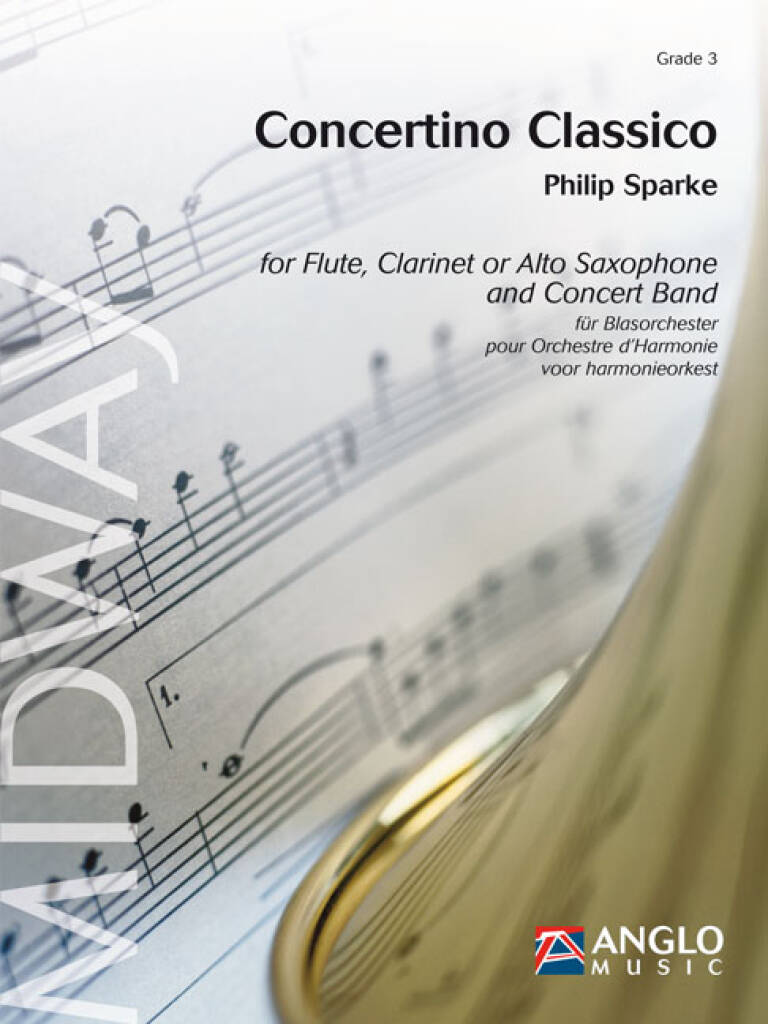 £110.99
£110.99Concertino Classico - Philip Sparke
In 2008, composer Philip Sparke published the latest volume of his instrumental books, Super Solos. Young German flautist Meinhard Drescher was so taken with these solos that his father secretly commissioned the composer toarrange three of the solos (Little Overture, Berceuse and Moto Perpetuo) into a mini-concerto for flute and concert band, which was presented to Meinhard as a 16th birthday present. Concertino Classico is in the standardquick-slow-quick concerto form and can be played by flute, clarinet or alto saxophone. Dur: 7:15 (Grade 4)
Estimated dispatch 7-14 working days
-
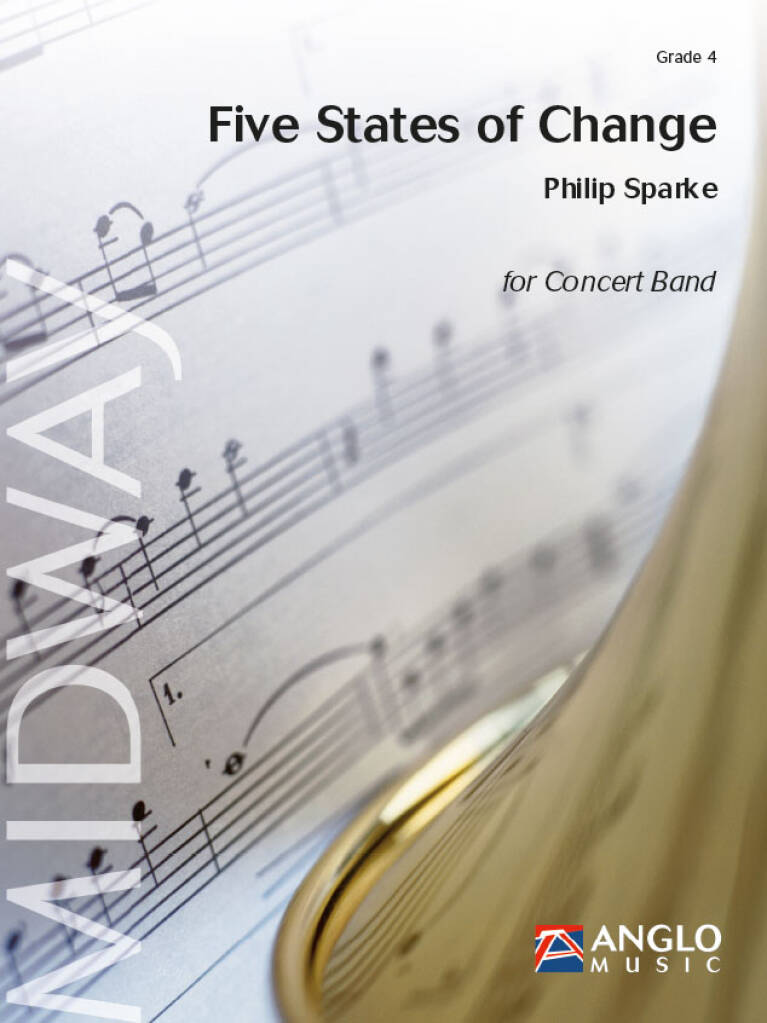 £183.99
£183.99Five States of Change - Philip Sparke
Five States of Change was commissioned by Kunstfactor for the 4th section of the Dutch National Brass Band Championships (NBK) 2011. It is dedicated to Jappie Dijkstra and the Music Information Centre (MUI), Arnhem, Holland, in acknowledgement of their outstanding work in developing band repertoire.The composer writes: "The idea for the piece came when I was reading an article about a branch of Chinese philosophy which is abbreviated as Wu Xing*, which has no exact translation but can mean, for example, five elements, five phases or five states of change. It is central to all elements of Chinese thought, including science, philosophy, medicine andastrology, and in simple terms tries to create various cyclic relationships between five elements in all walks of life.An example is: Earth - Metal - Water - Wood - Fire - (Earth) etc. where (in one cycle) earth bears metal, metal changes to liquid (water) when heated, water helps trees grow, wood burns to create fire, fire produces ash (earth) and the cycle continues.I was particularly interested in the cycle of emotions:- Meditation - Sorrow - Fear - Anger - Joy - (Meditation) etc. and thought this cyclic principle would provide an effective emotional journey for a piece of music. So Five States of Change has five equal sections which loosely characterise this emotional cycle. I have tried to make the music grow organically, with minimal repetition, and each movement evolves from the musical elements at the end of the previous one, with the opening material appearing, transformed, at the end of the piece to complete the cycle. *in full Wu zhong liu xing zhi chi or the five types of chi dominating at different times
Estimated dispatch 7-14 working days
-
£332.99
Tales & Legends - Etienne Crausaz
This three-movement work by the Swiss composer Etienne Crausaz reflects three true stories and fascinating legends from the Middle Ages. The first movement tells the dramatic story of the 'witch' Catherine 'Catillon' Repond (1662-1731). She was the last woman ever to be executed for sorcery. In the second movement, the famous court jester Girard Chalamala occupies centre stage. This jester, the last one at the castle of Count Greyerz, could make everyone laugh. The third movement tells the story of Count Michael. He went down in history as a spendthrift bon-vivant. His burden of debt became so high that he did a moonlight flit and never came back!
Estimated dispatch 7-14 working days
-
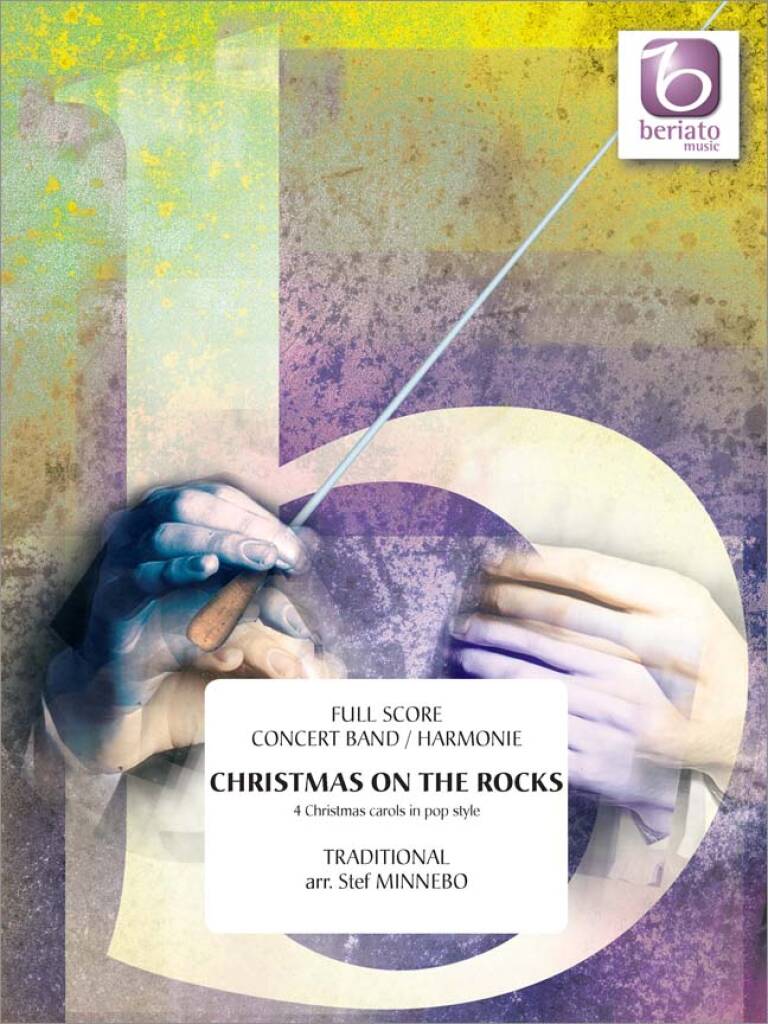 £89.99
£89.99Christmas on the Rocks
Christmas on the Rocks collects together four world famous English Christmas carols in an instrumental pop arrangement. Optionally, the audience or a choir can also sing along. If so, the conductor gives the cues. The following Christmascarols are included in this work: God Rest You Merry, Gentlemen - Joy to the World - Away in a Manger (one verse flute solo), and Deck the Halls.
Estimated dispatch 7-14 working days
-
£274.99
Suite (From Der Rosenkavalier) - Richard Strauss
Richard Strauss (1864-1949) is mainly known for his symphonic poems such as Don Juan, Also Sprach Zarathustra, Ein Heldenleben,... However, he also wrote many operas and "Der Rosenkavalier" (created in 1911 in Dresden) with a libretto by Von Hofmannsthal is probably the most popular of them all. In our "Jan Cober Series", we would like to present this very special arrangement of the suite from "Der Rosenkavalier". Jan Cober worked extensively on this arrangement and carefully composed this new suite. In this respect, he preserved the necessary mood and vitality of Strauss's music so it could be played by a brass band. He has done this without losing sight of the musicaltension of the original.
Estimated dispatch 7-14 working days
-
£159.99
Saga Maligna - Bert Appermont
"Zaad van Satan", an open-air musical composed by Bert Appermont, attracted an audience of almost 10,000 in 2000. Bert Appermont extracted a highly successful first suite entitled "Saga Candida". Its sequel, "Saga Maligna" is a colourful and varied composition which appeals strongly to the imagination. It is cleverly composed so that each instrumental section features across the many beautiful melodies.
Estimated dispatch 7-14 working days
-
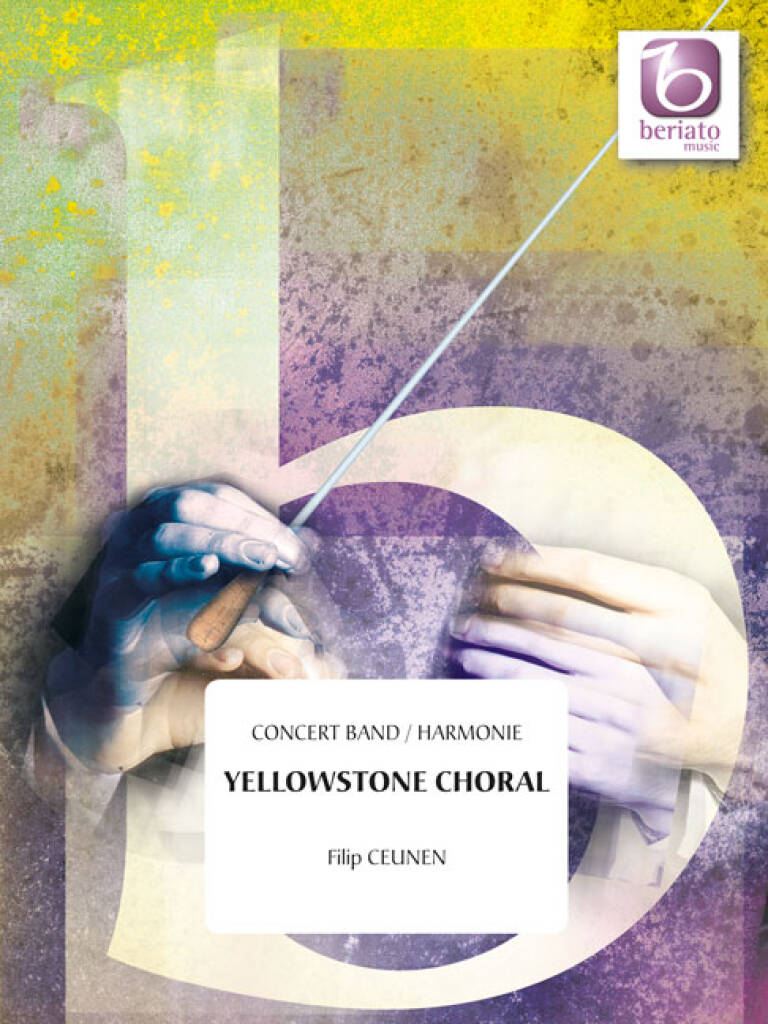 £89.99
£89.99Yellowstone Choral - Filip Ceunen
Yellowstone Choral was inspired by the marvellous landscapes of the Yellowstone National Park in the United States. The choral comprises three choral phrases that alternate throughout the work. The beginning is lightly orchestrated, with an oboe solo, but more instruments gradually join in before the second phrase of the choral is introduced. The third phrase does not appear so quickly and when it does it is introduced by horns and trombones before building up to the climax of the choral, where the trumpet takes the upper hand. After this the choral gradually fades away, with the first and second phrases appearing just a few more times. The choral ends as it began,with a slowly ebbing orchestration.
Estimated dispatch 7-14 working days
-
£37.50
Sentimentale - Satoshi Yagisawa
Premiered by Funabashi Hiagshi High School under the direction of Shinichiro Tagawa in March, 2015, Sentimentale is an excerpt from Yagisawa's Trumpet Concerto. That work, commissioned by the Japan Air Self-Defense Force Central Band with trumpet soloist Kenichi Kurishu, premiered in 2003 with many subsequent performances. In 2013, the Concerto had its U.S. debut with Kagoshima Joho HS and Robert Sullivan, principal trumpet of the Cincinnati Symphony. I received many warm regards and compliments on the work, especially for the second movement. However, I also heard regrets that the interlude required a trumpet soloist. I remembered the words of Mr. Tagawa, who had collaborated with me on works such as"And Then the Ocean Glows" and"Hymn to the Infinite Sky". Ten years earlier he suggested that I arrange that movement for full band so that it could be more widely enjoyed. Though I agreed then, only now have I had the chance to realize this idea, as Mr. Tagawa presented me with the opportunity of this musical creation and world premier.This new arrangement was entitled "Sentimentale" by Mr. Tagawa. I composed the piece with his constant consultation, discussing grade level and instrumentation, and how the work should be a chorale etude for both concert and daily training. I would like to express my sincere gratitude to both Mr. Tagawa and Funabashi Higashi High School.(Satoshi Yagisawa)
Estimated dispatch 7-14 working days
-
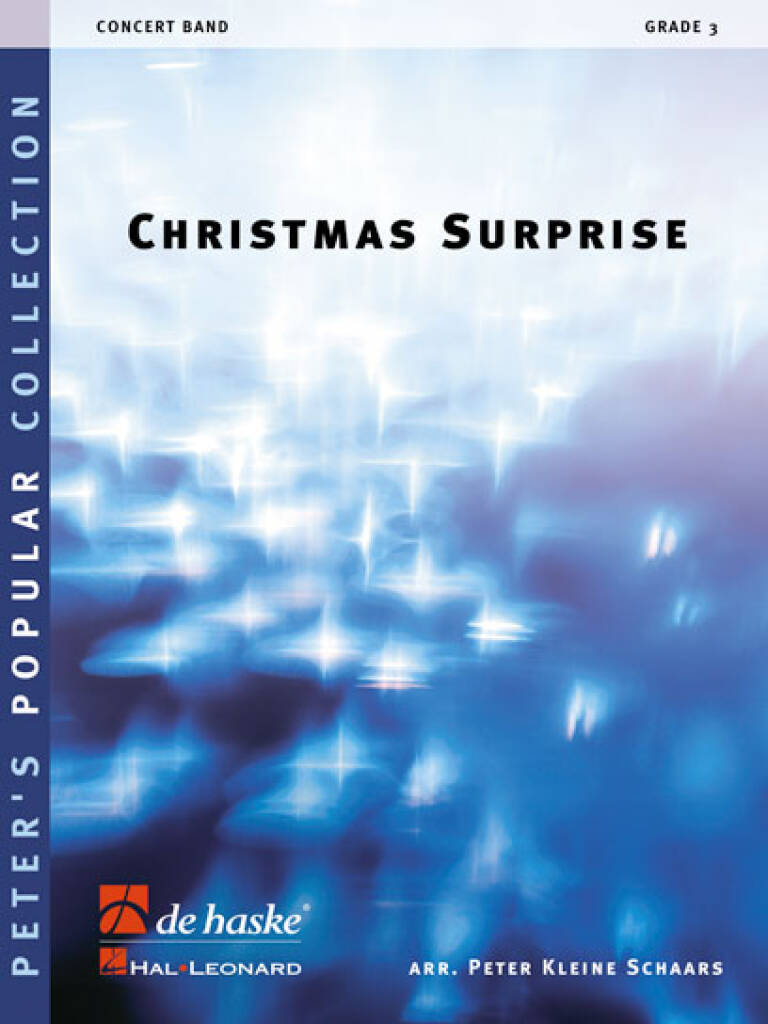 £104.99
£104.99Christmas Surprise
Christmas is a festival of joy, so why not celebrate this time of the year with a swinging festive piece? Christmas Surprise will both surprise and delight your audience. Peter Kleine Schaars' medley, featuring well-known songs, will be an exciting highlight at your next Christmas concert!
Estimated dispatch 7-14 working days
